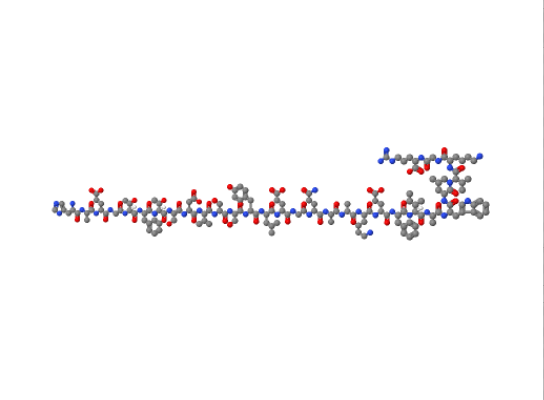Beinaglutide is a human GLP-1 polypeptide with CAS number 123475-27-4 and has nearly 100% homology with human GLP-1(7-36). Benalglutide is dose-dependent in controlling blood glucose, inhibiting food intake and gastric emptying, and promoting weight loss. Benalglutide has the potential to study overweight/obesity and non-alcoholic steatohepatitis (NASH).
Basic information
Chinese name: 贝那鲁肽
English name: Beinaglutide
Company number: GT-M19402
CAS number: 123475-27-4
Sequence: HAEGTFTSDVSSYLEGQAAKEFIAWLVKGR
Molecular formula: C149H225N39O46
Molecular weight: 3298.61
This high degree of structural similarity allows Beinaglutide to mimic GLP-1 in the human body, thereby playing a role in various physiological processes. First, Beinaglutide is significantly effective in blood sugar control. It can help regulate blood sugar levels, keeping them within a relatively stable range, which is particularly important for diabetes patients.

In addition, Beinaglutide has a significant inhibitory effect on food intake and gastric emptying. This means that when the body ingests Beinaglutide, it can slow down the rate of gastric emptying, making people feel fuller, which helps reduce food intake and consequently aids in weight management. Additionally, Beinaglutide can promote weight loss, which has been confirmed in many studies.
It is worth noting that the effect of Beinaglutide depends on the dosage, meaning its effects increase with the increase in dosage. This allows doctors to adjust the dosage of Beinaglutide according to the specific circumstances of the patient to achieve the best therapeutic effect.
Besides its applications in diabetes and weight management, Beinaglutide has also shown research potential in overweight/obesity and non-alcoholic steatohepatitis (NASH). This indicates that Beinaglutide may see broader applications in these two fields in the future.
Generally speaking, as a peptide with high homology to human GLP-1, Beinaglutide not only has significant effects on blood sugar control, food intake, gastric emptying, and weight loss but also holds great potential in research related to overweight/obesity and non-alcoholic fatty liver disease.
Post time: 2025-09-26
